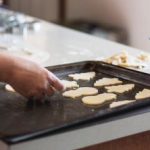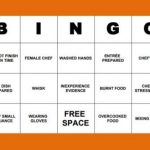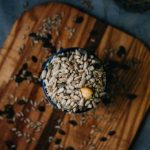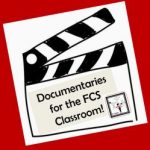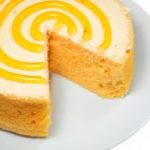
Students always want to bake cakes! Maybe it’s because the cakes they get at home are typically prepackaged or out of a mix! Don’t get me wrong…those are great once in awhile and have saved me on more than one occasion, when time was at a premium! However, when talking to students, I get the impression that most only get scratch baked cakes in rare instances or on very special celebratory days! I guess I was lucky growing up because my family baked cakes often, as desserts were a delicious way to end the evening meal! Because of this, I was fortunate to be exposed to a variety of different cakes. The funny thing is that while growing up, I thought there were tons of different types of cakes, but in reality there are only a couple! This lesson focuses on a cake overview of history, types, solving cake problems and includes some labs, focusing on the two basic types of cakes!
Read more →
